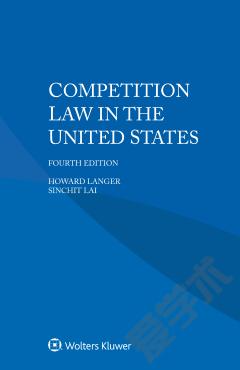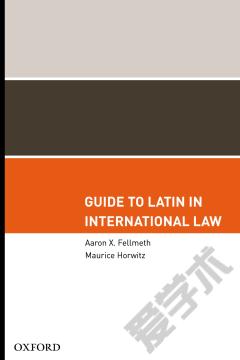Competition Law in Latin America —— A Practical Guide
----- 拉丁美洲竞争法:实践指南
In the past few years Latin American countries have taken giant steps to reposition their competition authorities in the global antitrust arena, granting them much greater autonomy both domestically and internationally. This is the first book to offer an in-depth analysis of this complex scenario.At the heart of the presentation are seven chapters detailing the competition regimes of the most active national jurisdictions in the region - Argentina, Brazil, Chile, Colombia. Mexico, Peru, and Uruguay. Written by practicing experts with considerable hands-on experience in their respective countries, each of these chapters provides a comprehensive description and explanation of the evolution, current state, and prospects for antitrust in the country. Preceding these country-by-country analyses are more general chapters on the use of economic analysis and on the special field of the information and communications technology industry, as well as chapters on the working of competition law in countries with regulated markets and in the cluster of Central American countries. Topics addressed encompass the following and more:? relevant institutions and legislation;? cartel investigations;? unilateral conduct policies;? merger review;? international coordination;? enforcement; and? remedies.Each chapter includes analysis of relevant case law, allowing the reader to gauge the positions, views, and tendencies of each competition law regime. The authors also pay attention to the specificities and idiosyncrasies that are so important for a correct understanding of the practical realities of competition policy and enforcement.With its wide-ranging and in depth-approach, this book provides an incomparable analysis of a challenging region poised to become increasingly important in the international recognition and enforcement of antitrust law. It is in this sense an essential guide for lawyers, economists, corporations, academics, and government officials interested in understanding where competition law is, and where is it is going to, in Latin America.
{{comment.content}}








 京公网安备 11010802027623号
京公网安备 11010802027623号